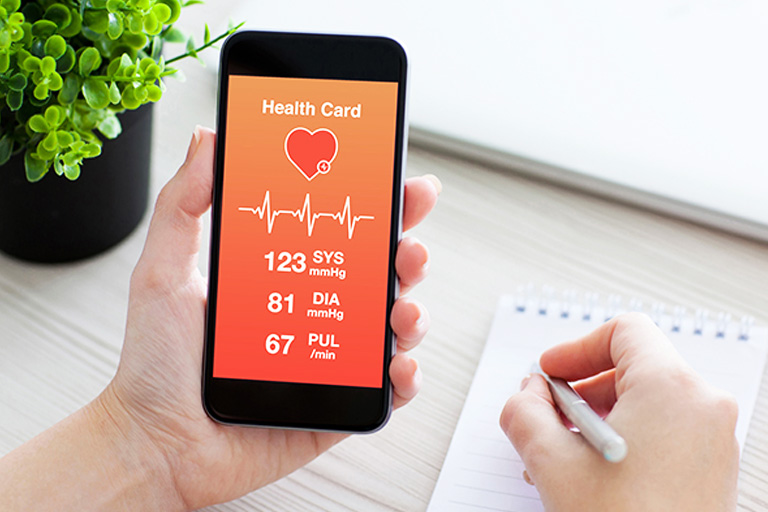It doesn’t require a lot of brainstorming to understand the unprecedented level of opportunities offered by the new breed of healthcare apps. Yes, healthcare apps continue to transform the healthcare industry just as ever before. In more than one way, healthcare apps are adding value to the day to day patient care and healthcare management practices.
In the era of technologies, mobile app developers find healthcare apps to be a breeding ground for astounding opportunities. While healthcare apps will continue to revolutionize healthcare, it is important to understand the key features or the key healthcare app functions that are playing the most elementary role in this transformation. Let us have a look at some of these key features.
Telemedicine
Thanks to the explosion of telemedicine, patients no longer need to queue up for doctor’s appointments or for buying their medicines from the medical outlet. Simply, commands from mobile apps can allow them to do all of these without any extra effort or difficulties.
As most healthcare experts continue to point out that most of the regular hospital visits are of basic nature, and they can be done without if roper consultation and access to medicine can be ensured. This is where telemedicine can play a huge role.
The medical health apps even took this one step forward by allowing patients to consult their doctors in real-time on the mobile screen through a teleconferencing facility. From sharing patient information to allowing a viral diagnosis to share clear pictures of the organs, a doctor app can do a lot for the treatment and care of the patients.
Mobile Patient Portals
Another important way that modern digital healthcare can bring revolution to patient care is by allowing access to patient information whenever they want and wherever they want. Such accessibility to vital health information starts from the patient portal created by the healthcare facilities. Thanks to these portals, patients can access their treatment and medication information without delay.
The patient portal further can be presented through a mobile app allowing users native control right from their mobile screen. Such native mobile apps, if built with hybrid technology to ensure offline access to certain data, can be highly beneficial for the patients to access their vital reports and information as and when they wish.
Such a portal will also allow them scheduling appointments with the doctors, to ask for medical tests and bruising about their particular health problems, and to get advice from experts. For chronic diseases and disorders, such native apps can help patients to stay continuously in touch with caregivers and healthcare experts.
Lastly, patients through such portals and native apps can also compare the pricing of the medications and other treatment packages they need to avail. Thus it can create a competitive and highly level-playing field for the healthcare businesses, the advantage of which will be enjoyed by the patients.
Cloud-Based Healthcare Apps
Healthcare mobile apps continue to grow in complexity thanks to the multiple facets of healthcare data such apps need to deal with. The emergence of connected healthcare with the medical IoT devices and sensors further added complexity to digital healthcare solutions.
Now whether the electronic medical record (EMR) systems of healthcare facilities or the connected healthcare gadgets or simply the wearable medical trackers, all gadgets, devices and solutions are allowing access to the medical data anytime and anywhere thanks to the cloud computing platforms.
Sharing Diagnostic Images
One of the crucial ways healthcare systems became revolutionized in recent times through mobile apps is through the ease of sharing diagnostic images. Yes, with the help of highly capable mobile camera systems of today’s flagship devices, patients can just capture the detailed images of their body parts and can share them with the medical experts in real-time.
In recent times we also have a plethora of such clinically equipped mobile apps that are able to capture the images of a variety of ailments ranging from skin rashes to inflated throat to a limb injury. As most medical and diagnostic practices as of now rely heavily on the visual images of the condition of ailment, such flexibility of sharing diagnostic images can improve patient care to a great extent.
Moreover, if mobile EHR apps become equipped with camera and image processing capabilities, the difficulties and time of sharing images can be completely avoided, and this, in the end, will only make healthcare service more efficient.
Conclusion
As the healthcare sector’s biggest change was brought by the mobile healthcare apps that made the diagnostic tools accessible to the common patients, the revolution is likely to continue through the years to come. As providing timely and fast-paced treatment and care became the hallmark of efficiency for modern healthcare facilities, mobile apps with its real-time advantage can really play a big role in this transformation.
The evolution of healthcare through mobile apps will also make a big impact on public healthcare and healthcare administration. The access to health and medical information of a big population will only help the decision-makers and strategists to conceptualize solutions to healthcare problems with real context and challenges in mind.
Author Bio
Nathan McKinley is Business Development Manager at Cerdonis Technologies LLC – mobile app developers in Chicago, the USA follows innovative practices to develop mobile/web application, that can ease the workload of human hands. After spending years in the marketing field as a business developer for tech domains, he has developed core expertise in Mobile Apps Development, Wearable Apps, HealthCare, Artificial Intelligence & Innovation and Technology which he loved to share with a slight touch of his perspective in it.






























